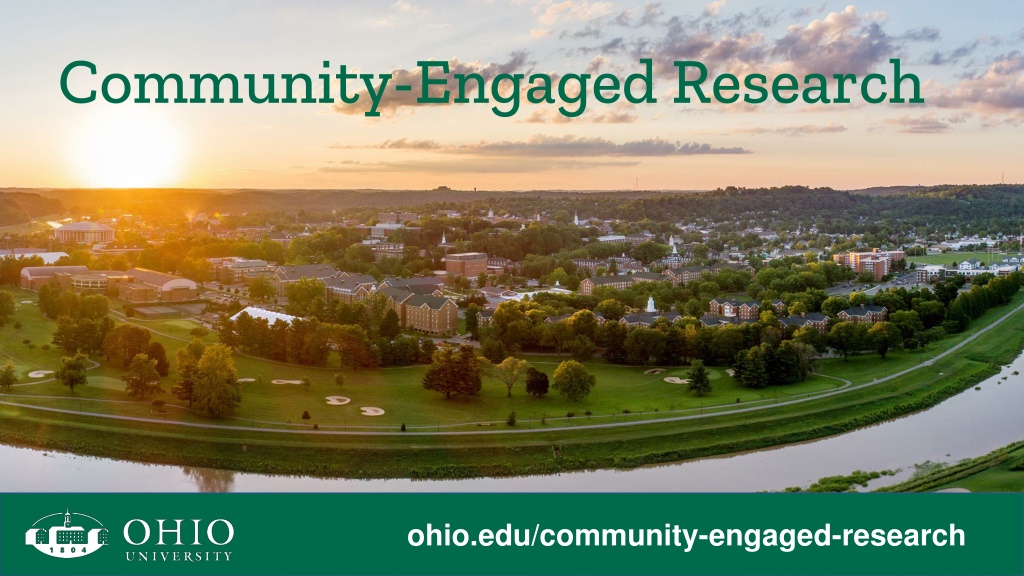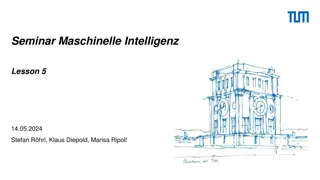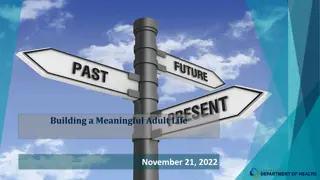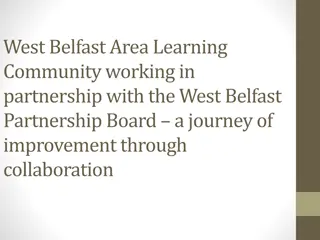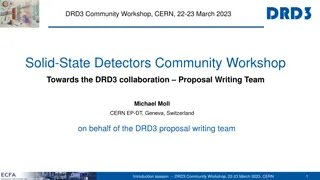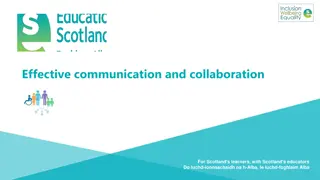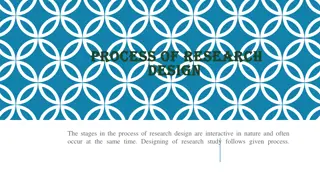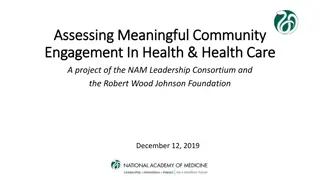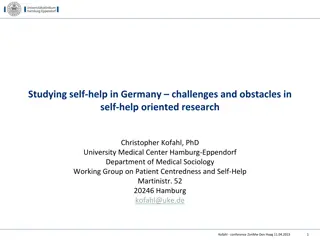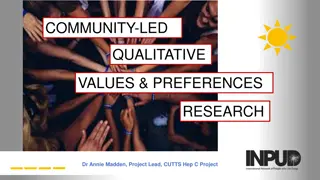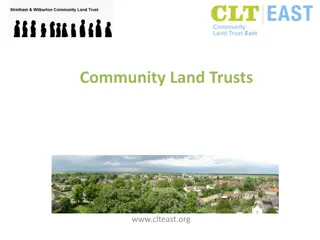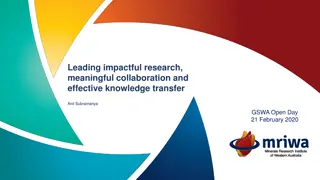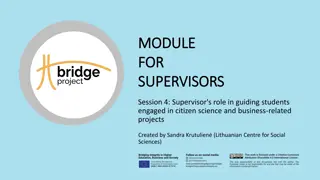Understanding Community-Engaged Research for Meaningful Collaboration
Explore the principles and benefits of community-engaged research as a collaborative process conducted with diverse community partners for mutual knowledge exchange and meaningful outcomes. Discover how this approach differs from community-focused research and why it fosters partnership and reciprocity.
Download Presentation

Please find below an Image/Link to download the presentation.
The content on the website is provided AS IS for your information and personal use only. It may not be sold, licensed, or shared on other websites without obtaining consent from the author. Download presentation by click this link. If you encounter any issues during the download, it is possible that the publisher has removed the file from their server.
E N D
Presentation Transcript
Community-Engaged Research ohio.edu/community-engaged-research
ohio.edu/community-engaged-research Community Engagement & Community-Engaged Research Community Engagement Defined by the Carnegie Foundation for Advancement of Teaching The collaboration between institutions of higher education and their larger communities (local, state/regional, national, global) for the mutually beneficial exchange of knowledge and research in a context of partnership and reciprocity. Community-Engaged Research Community-engaged research is a process where research is conducted WITH the community to ensure mutually beneficial outcomes. Members of the research team are all equal partners throughout the research process. This is different than community-focused research where research is done ON or IN the community.
ohio.edu/community-engaged-research Defining Our Community Community is any small or large social unit that has something in common. A Community may be based on geography, culture, religion, or identity. Community partners may include, but are not limited to: o individuals and families; o school systems; o community coalitions; o neighborhood associations; o healthcare systems; o non-profits; o businesses and industry; and o government agencies
ohio.edu/community-engaged-research Principles of Community Engagement
ohio.edu/community-engaged-research Comparing Research Approaches Source: Research Institute (OCTRI)http://www.ohsu.edu/xd/research/centers- institutes/octri/collaboration/upload/Frequently_Asked_Questions_about_Community-Engaged_Research.pdf
ohio.edu/community-engaged-research Comparing Research Approaches Source: Research Institute (OCTRI)http://www.ohsu.edu/xd/research/centers- institutes/octri/collaboration/upload/Frequently_Asked_Questions_about_Community-Engaged_Research.pdf
ohio.edu/community-engaged-research Skill transfer Why Community- Engaged Research?
ohio.edu/community-engaged-research Is this community-engaged research? Scenario 1 You have identified a funding stream that requires a community-based advisory board. There is an established advisory board that could be beneficial as a partner on the grant application. You talk to one member of the board and they seem interested. For the grant, you reference this board as a partner but none of the board members are contributing to the project development because the grant deadline is very short. Would this be considered community-engaged research? No, this is not community-engaged research. Simply, referencing a community advisory board does not meet the criteria.
ohio.edu/community-engaged-research Is this community-engaged research? Scenario 2 A community member meets a faculty member at the Farmers Market and they discuss issues around town. They set up standing meetings where they discuss these issues. Over time, they develop a question that they felt could be answered. As a result, a couple students work along with the community and faculty member to design a research project that could help improve the issues identified. Would this be considered community-engaged research? Yes, this is community-engaged research. Taking cues from and engaging the community partner through the entire process meets the criteria.
ohio.edu/community-engaged-research Is this community-engaged research? Scenario 3 A project that is being developed has been endorsed by the project advisors who are community leaders. During the implementation phase of the project, the researcher maintains complete control, including data collection and analysis. The project advisors are only passively involved but have interest in helping and translating the findings. Would this be considered community-engaged research? No, this is not community-engaged research. The partnership needs to be equal across the entire process. The project advisors should contribute to and help with all aspects.
ohio.edu/community-engaged-research Is this community-engaged research? Scenario 4 While working together on designing research questions, a community representative provides an alternative research questions that they feel would be better for the community. The researcher hears the suggestion and works to modify the questions to answer the new research question. Would this be considered community-engaged research? Yes, this is community-engaged research. Giving the community member an equal voice can contribute to stronger and questions that have a greater impact.
ohio.edu/community-engaged-research Tips for Building the Partnership Set clear expectations Mutual trust, respect and commitment Identify strengths and needs Clear and open communication Have transparency in decision-making Use feedback to, among and from all members Have clear structure to define roles, norms, and processes Use existing structures to incorporate in solutions Strive to build a long-standing and sustainable partnership
ohio.edu/community-engaged-research Questions? For more information: www.ohio.edu/community-engaged-research Or email, CeR@ohio.edu
